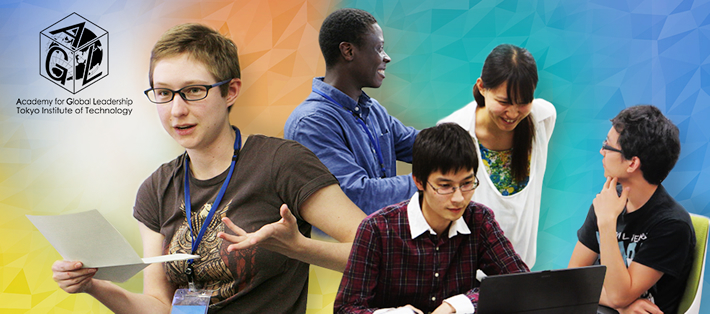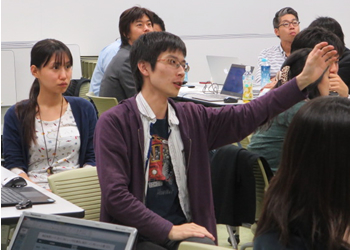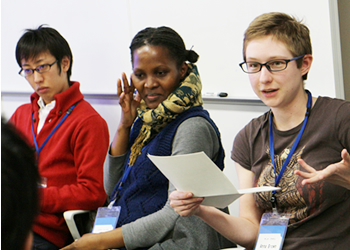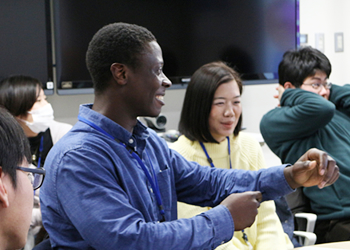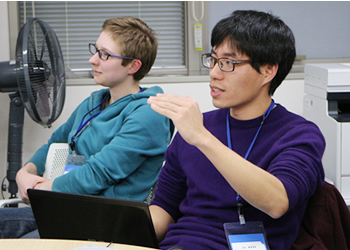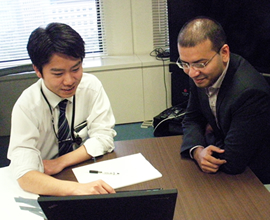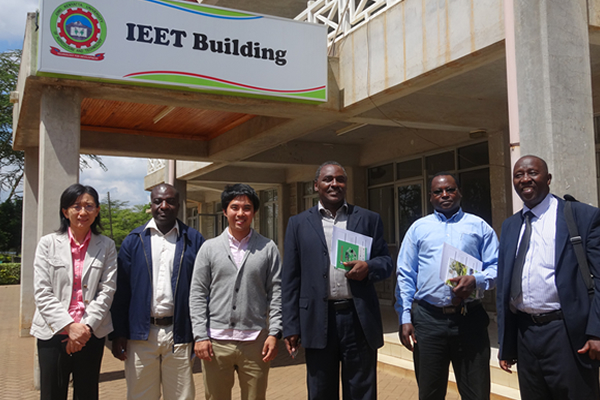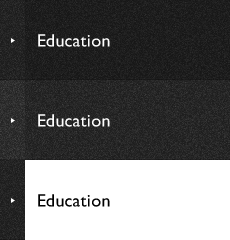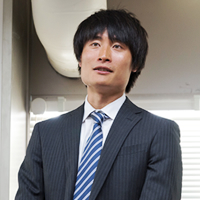
Dr. Azechi at the program completion ceremony
Three and a half years went by surprising fast after enrolling in the AGL program in my second year as a master's student. Back in 2011 when the Great East Japan Earthquake struck, I was considering whether or not to go on to a doctoral program. At that time, I happened to see a poster of AGL recruiting its inaugural students. Having a strong desire to conduct further research, I decided to advance to a doctoral degree program and enroll in AGL. As a first-generation student of the program, I adopted a process of trial and error throughout the period, contributing to formulating the AGL program. I am very happy I completed the program as an inaugural student.
AGL students work closely with faculty members and reap the benefits of intense communication. I had many opportunities to try various things. My most memorable one was an overseas training period which I proposed myself as part of the Off-Campus education program.
AGL gave me a chance to experience countless things outside my own field of expertise. I'm not sure if I can leverage all of them, but I am confident that the knowledge and experiences I acquired at AGL will be a driving force in my life.
Some people are cynical about recent Japanese society, even referring to it as the two lost decades, but I keep a positive attitude. Using my AGL experiences, I know I can contribute to the future of society, and I hope my generation as a whole leads a process of change.
. Any information published on this site will be valid in relation to Science Tokyo.


